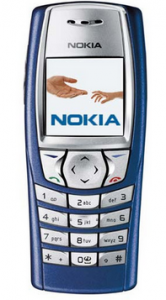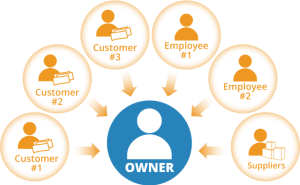
Less than a month after workers at a Memphis, Tennessee, Starbucks location announced their plan to unionize—joining workers in stores across the country—multiple members of that store’s organizing committee have been fired in what union members allege is retaliation for speaking to the media, according to Starbucks Workers United, the collective of Starbucks partners who are organizing across the country. The terminations were confirmed by the company, who contends the workers were fired for violating multiple safety and security policies.
It’s not yet clear how many employees were terminated. Company spokesperson Reggie Borges says that details will be forthcoming, as conversations with some workers are ongoing; SB Workers United members said it was “virtually our entire union leadership in Memphis at the Poplar & Highland store.”
According to Borges, the Starbucks workers in Memphis broke company policies when they opened a locked door after the close of the business, allowed partners not currently working, as well as “unauthorized individuals,” into the closed store; allowed those unauthorized individuals “behind the line and in the back of the house while leaving the unlocked door unattended,” and because one partner “who was not the designed cash controller at the time” opened the store safe. The “unauthorized individuals” in question include members of the media, who interviewed Memphis partners inside the store.
You’re looking at the first @Starbucks employees in #Memphis trying to unionize.
Hear their grievances, see the steps needed to form a union and find out who’s helping these workers tonight on @WMCActionNews5 at 10. pic.twitter.com/pBn73jn7ib
— Joyce Peterson (@MemphoNewsLady) January 19, 2022
Starbucks workers, though, take issue with the company’s response of termination for violating those policies without the usual warnings or write-ups, and what they say are inconsistencies with how corporate officials enforce these policies. “I got fired for ‘opening a door’ and ‘being behind the line off the clock,’” one terminated employee wrote on Twitter. “How many times have I made my own drinks during my lunch break. How many times have I been on the floor during a lunch break. How many times have I opened the door for mobile order [sic] when the cafe was closed.”
Under the National Labor Relations Act, terminating employees for engaging in union activity is considered unfair labor practice. Starbucks workers are calling these terminations “the most blatant act of union-busting yet,” and specifically “retaliation against us on the union organizing committee.” Borges counters that, for months, workers have been speaking to the media without being fired, that they have no issues with partners having conversations with the media, and that no worker has been “reprimanded or disciplined” for doing so.
The burden of proof on whether or not the termination of these Memphis employees was, in fact, in retaliation now lies with those workers, who can—and plan to, according to More Perfect Union—file a charge against Starbucks with the National Labor Relations Board. From there, says Cathy Creighton, director of Cornell University ILR Buffalo Co-Lab (an extension of Cornell’s School of Industrial Labor Relations), the company will likely argue they did not terminate employees for their union activity, but for breaching company policy. “It will be then up to the employees to prove that the employer’s position is a pretext, and that the actual reason for their termination is their union activity,” she says.
The case can take months, though, and would require time for an NLRB investigation, an employer response, and—if the board believes the company did violate the law—a trial before a judge.
Aside from whether or not these employees were actually fired for their union activity, this moment could be crucial to the overall unionization effort that has been spreading to Starbucks stores across the country. “To me,” Creighton says, “the more interesting question is, Will this action only inflame [the effort] further? In other words, will these employees be martyrs and promote more organizing? Or will it stop employees from organizing? What effect will it have?”
SB Workers United has already created a GoFundMe for the terminated employees, which has nearly $2,000 within an hour of being shared on Twitter; and posts about the incident online have garnered support from many, including people who have brought up the idea of a boycott or have written to corporate to complain about the incident.
Fast Company , Read Full Story
(15)







